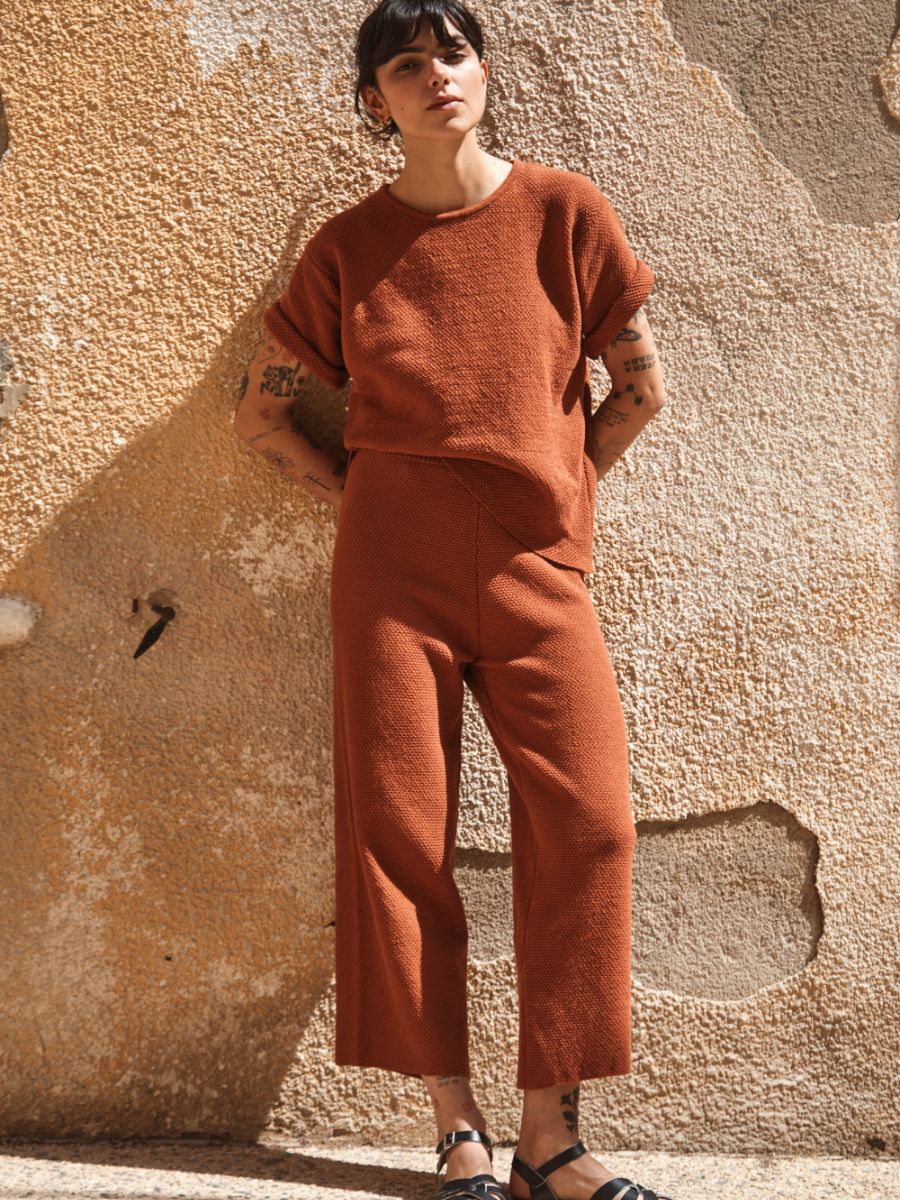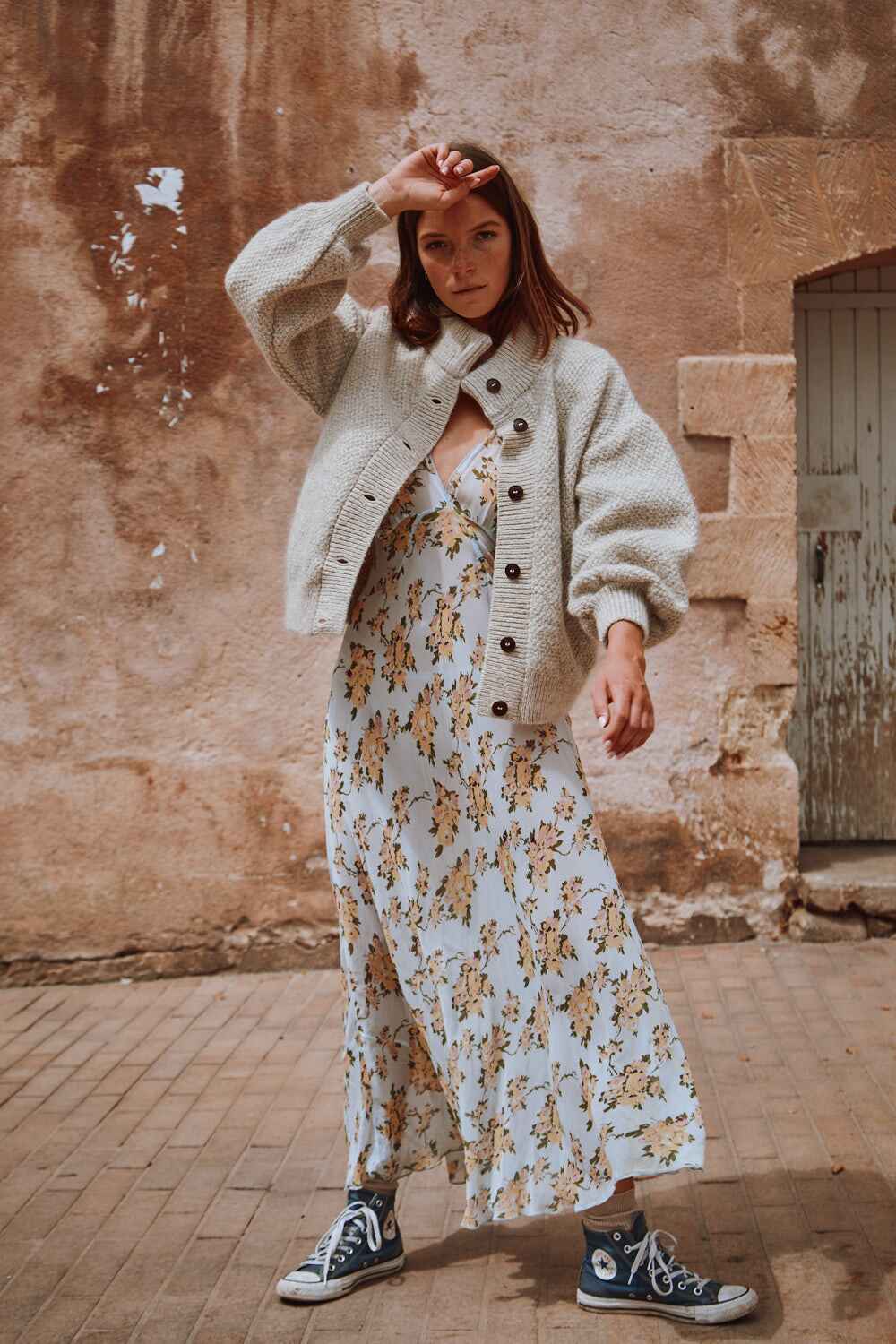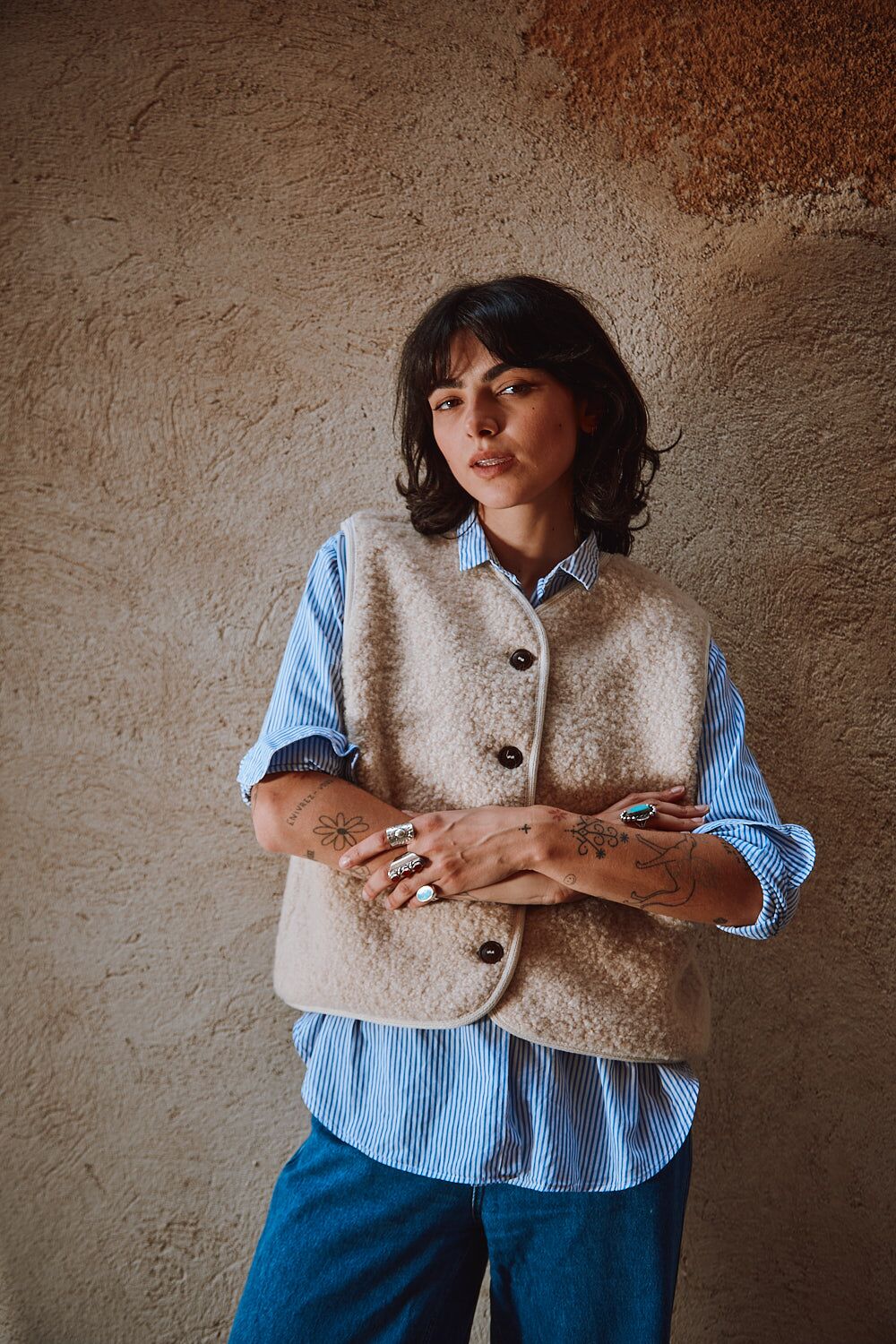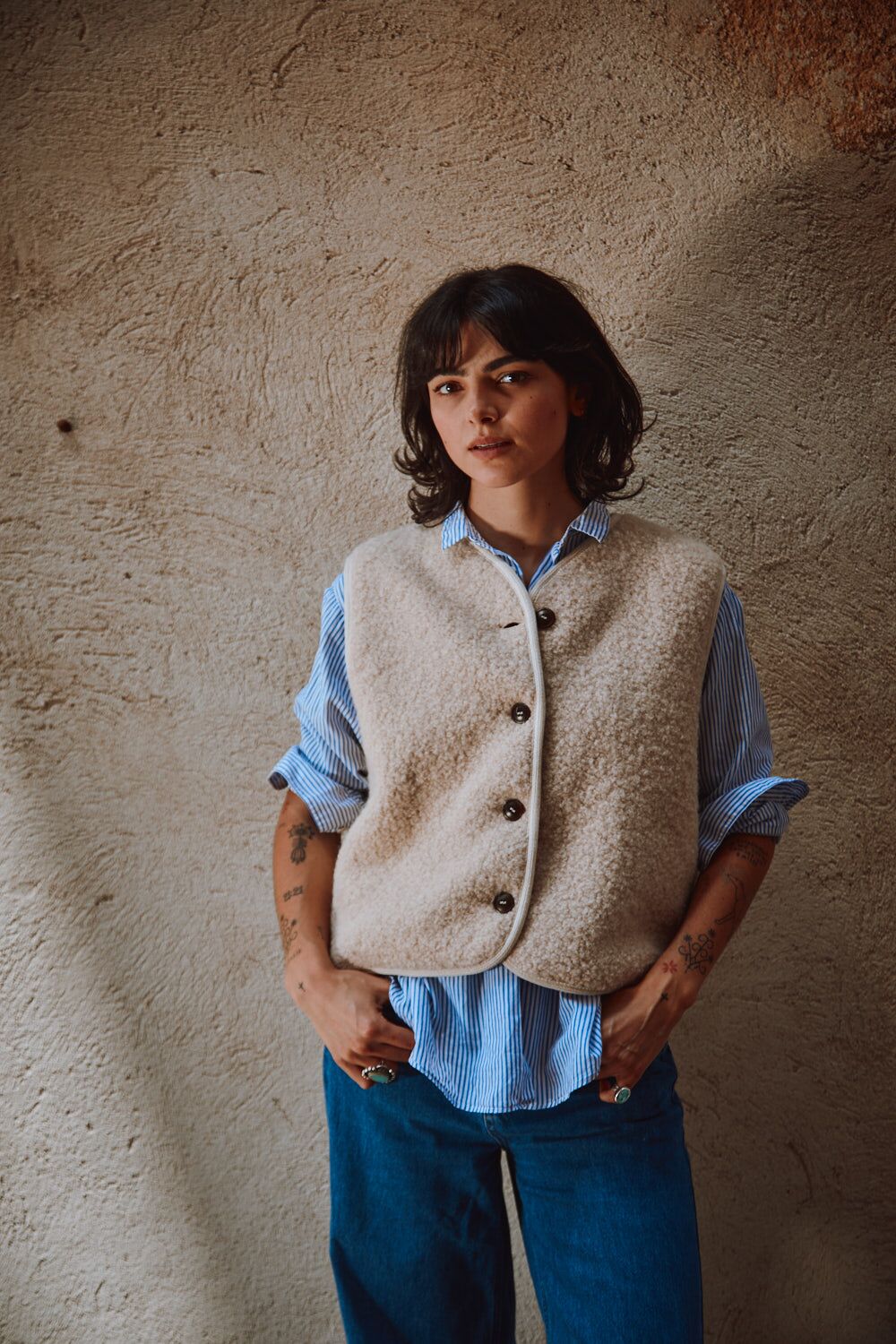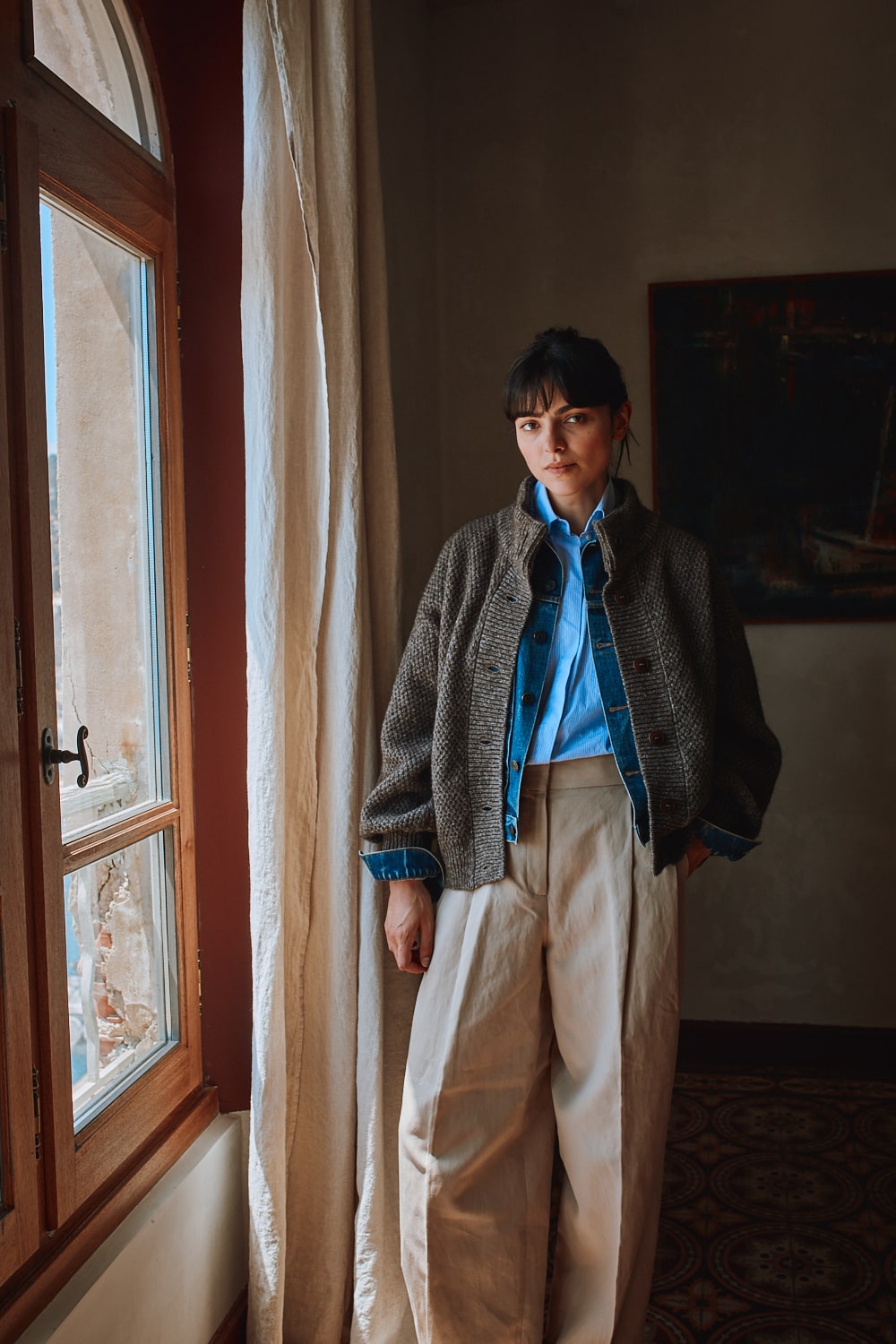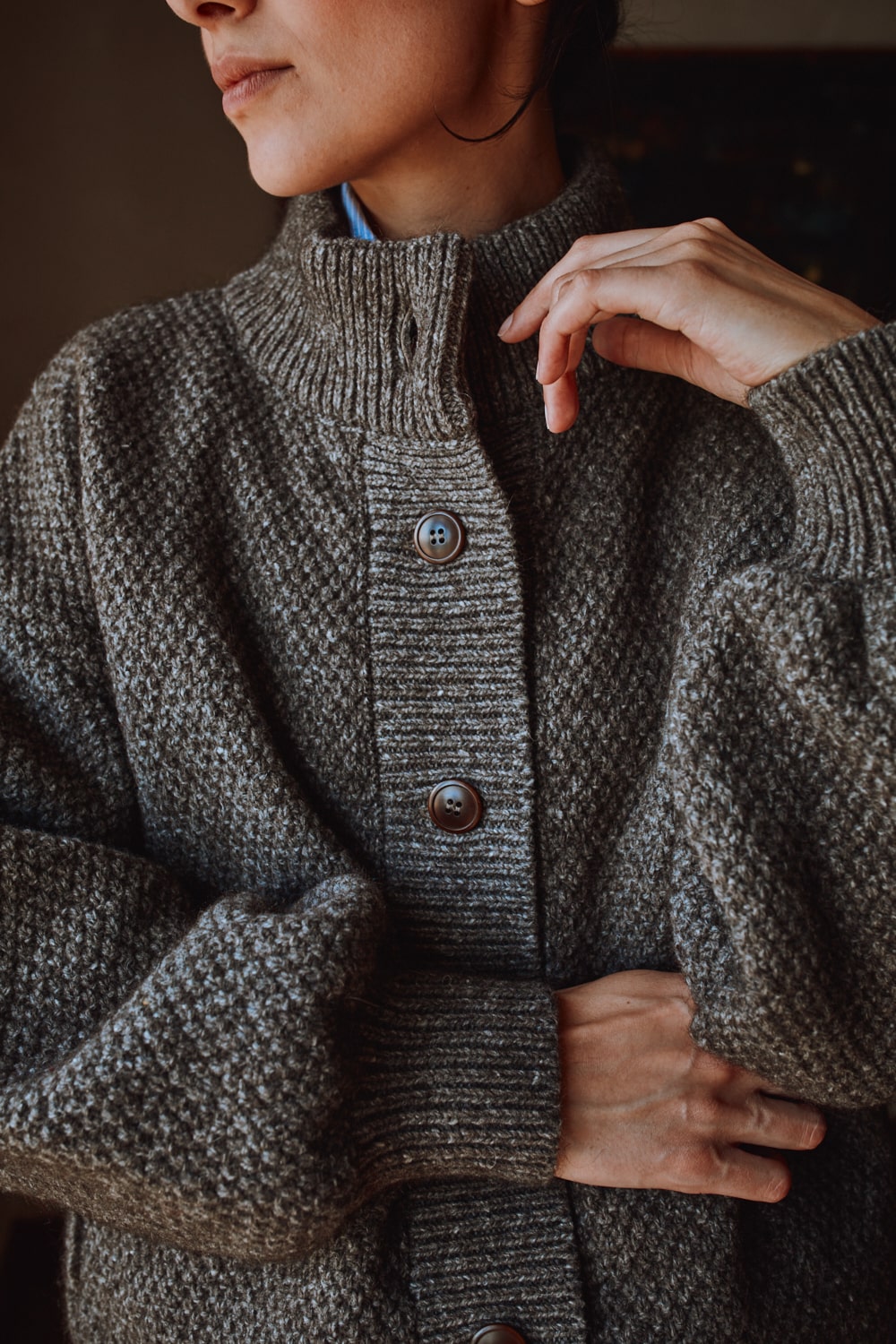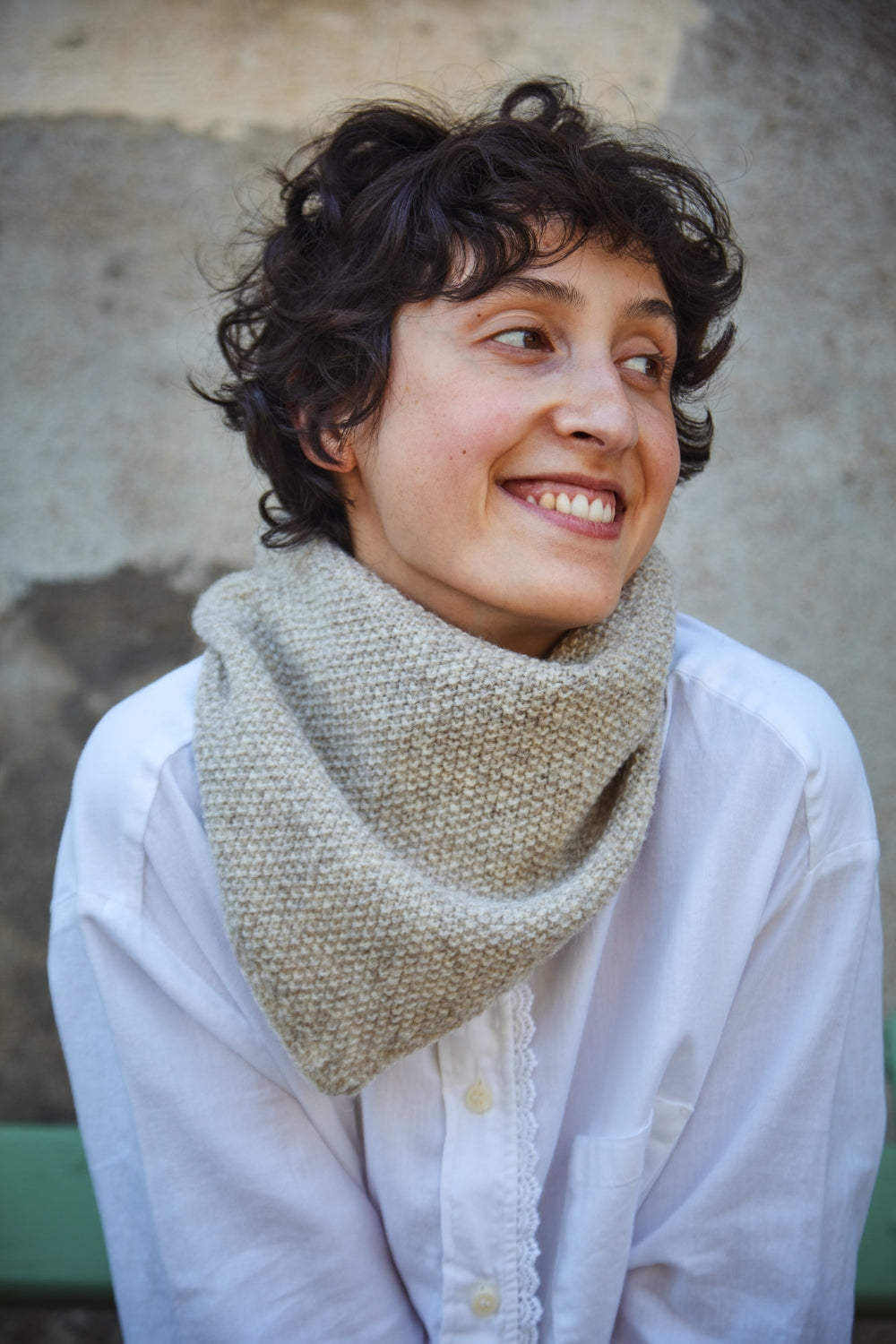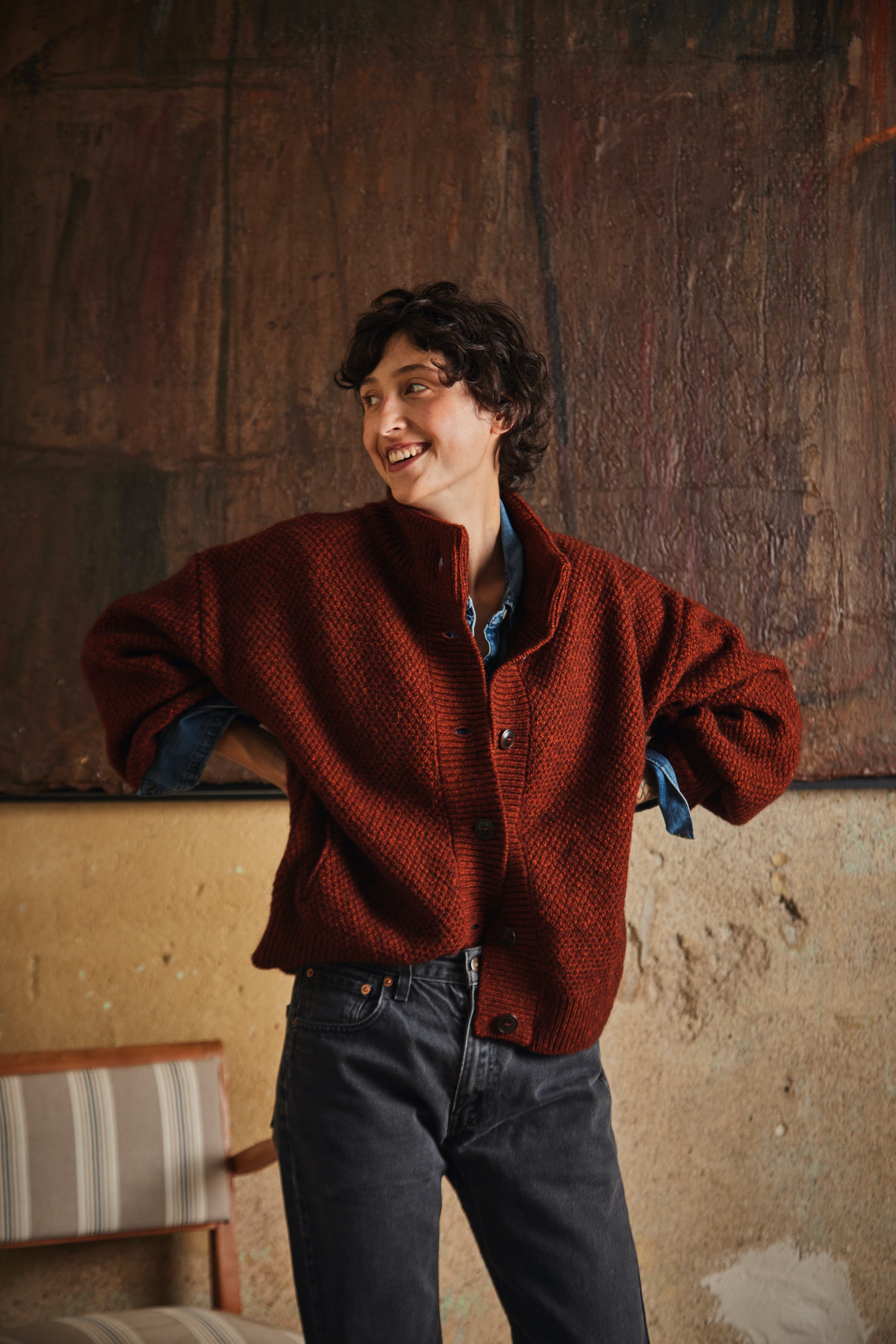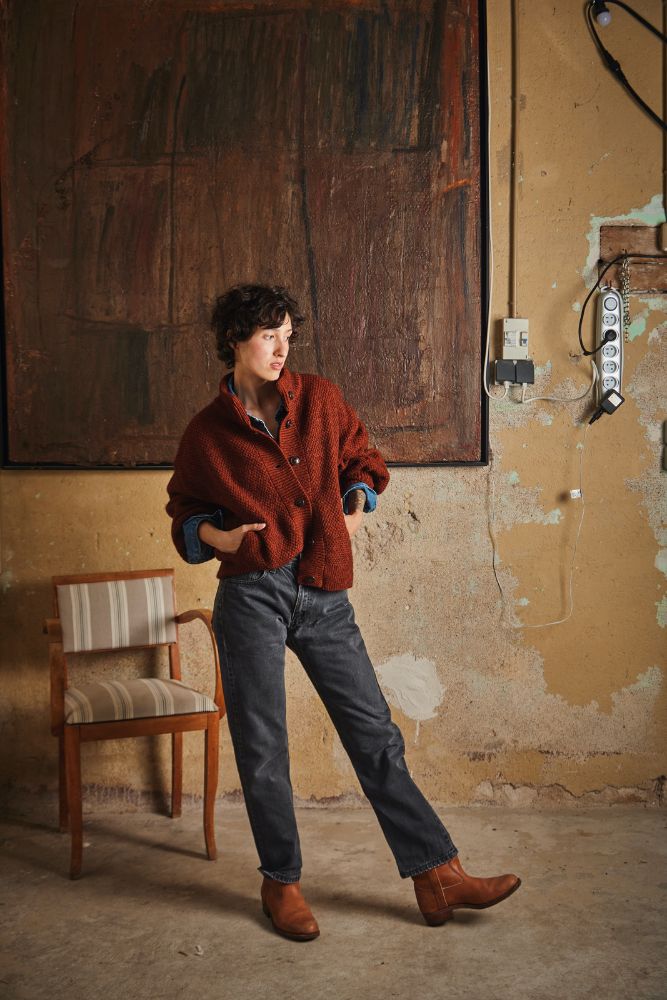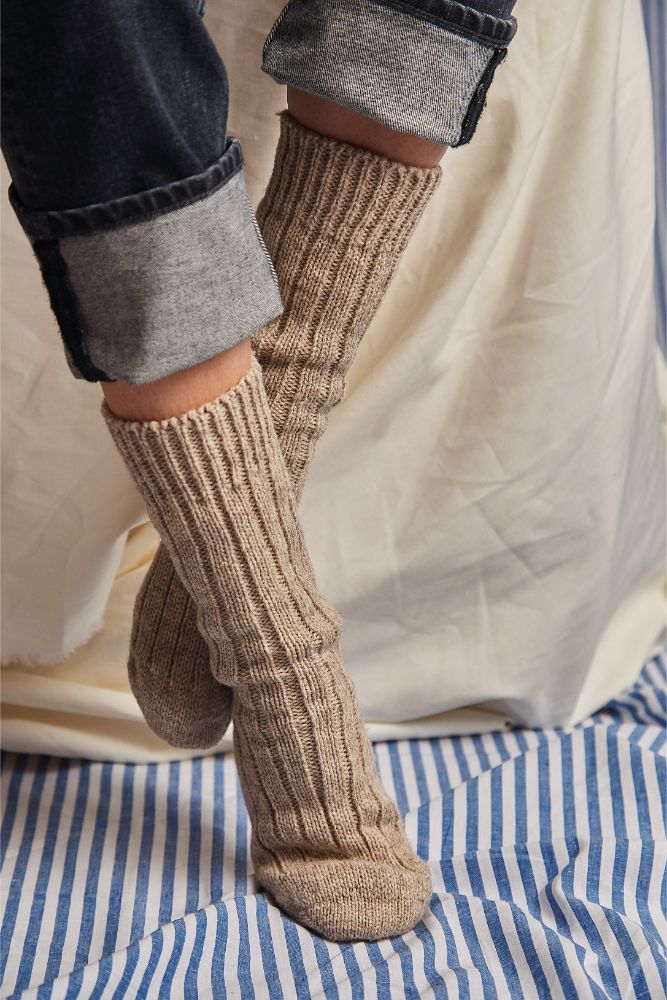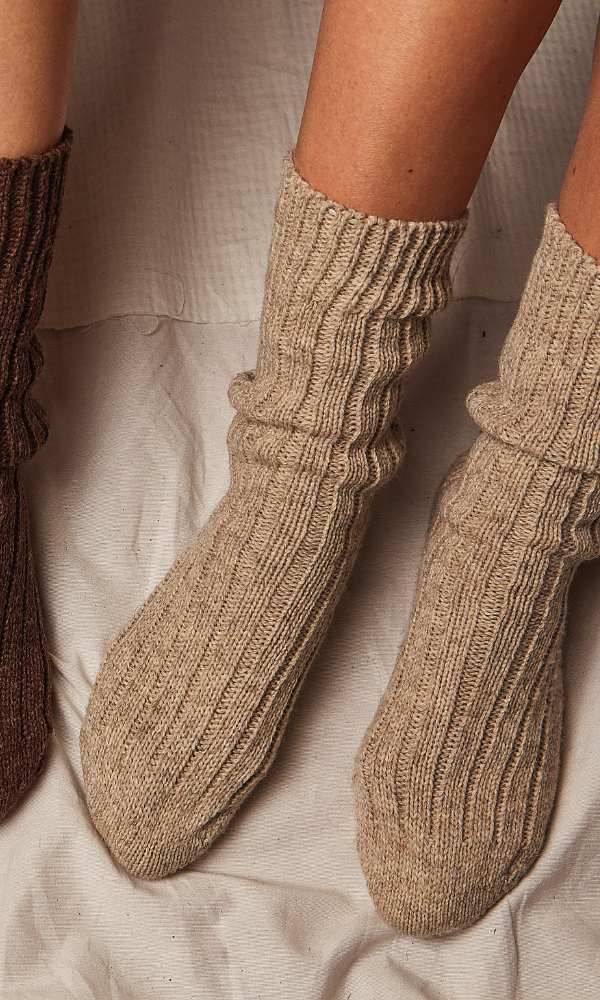THE BENEFITS OF KNIT-TO-ORDER FASHION
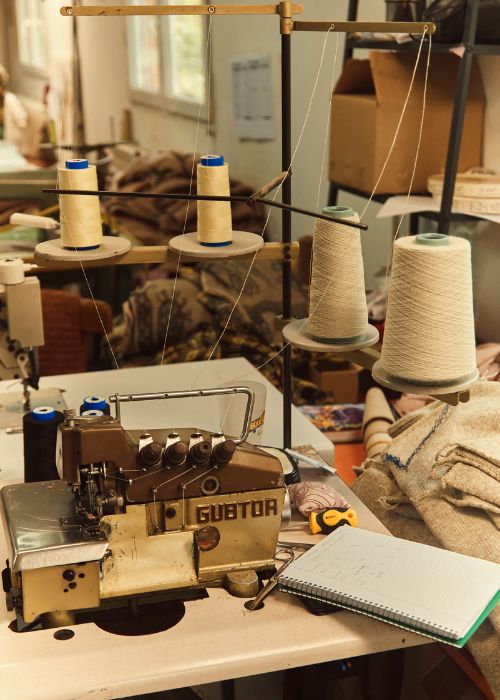
Knit-to-order fashion is changing how clothes are made and worn.
Instead of producing large quantities and hoping they sell, this model creates each piece only after it’s ordered. It’s a slower, more thoughtful approach that stands in contrast to fast fashion.
By producing only what’s needed, knit-to-order fashion reduces fabric waste, lowers emissions from unused stock, and supports zero-waste clothing practices. It also gives customers access to custom-made fashion that fits well, feels comfortable, and lasts longer.
As more people look for sustainable and eco-conscious clothing, knit-to-order offers a clear path forward—one that values quality, fairness, and the planet.
Understanding Knit-to-Order Fashion
Knit-to-order fashion has an impact on production methods. Brands like L'Envers make each item after a customer orders it. This model cuts down on excess production and waste, unlike fast fashion, which often churns out more clothes than needed.
Knit-to-order brands skip extensive inventories. They zero in on smaller, well-thought-out collections. They design with a clear purpose, picking materials such as organic cotton and other eco-friendly fabrics. This strategy gives buyers higher quality and a better fit while helping brands minimize leftover stock.
It also opens up more options. Brands can roll out new designs in small numbers and tweak them based on what sells. The end result? Clothes that fit right, last longer, and support an extended product lifecycle.
When customers choose knit-to-order, they back a slower, fairer type of fashion. This approach values the earth, the people who make the clothes, and those who wear them.
But are there any other benefits?
Environmental Benefits of Knit-to-Order Practices
Knit-to-order fashion helps reduce the industry’s environmental impact. By making each piece only when it’s ordered, brands avoid the overproduction that leads to wasted fabric, unsold stock, and excess shipping.
This supports zero-waste clothing practices as every garment is made with purpose, using only the materials needed. That means less textile waste sent to landfills and fewer resources wasted in production.
It also helps lower the carbon footprint. Because production is demand-driven, there’s less energy used on storage, transport, and disposal. Brands can source sustainable materials like organic cotton in smaller quantities, further reducing harm to the planet.
Zero Waste: How Knit-to-Order Reduces Overproduction
Overproduction is one of the biggest sources of waste in the fashion industry. Traditional brands make large volumes of clothes based on forecasts. When those pieces don’t sell, they end up discounted, stored, or destroyed.
Knit-to-order fashion breaks that cycle. Each piece is made after it’s ordered. Brands don’t need to guess demand or carry excess inventory. That means no unsold stock, no warehouse overflow, and less waste from unwanted clothes.
This approach also allows brands to focus on quality over quantity. Brands can refine each design, choose better materials, and create products that last for years—not just one season. Customers also get clothing that fits better, feels better, and supports a zero-waste clothing model.
Ethical and Sustainable Fashion Choices with Knit-to-Order
Selecting knit-to-order fashion is a choice not just about style—it's a stand for sustainability and equity. Many of these products are produced in smaller workshops where wages and working conditions are clearer. This slower system also provides the time to prioritize quality, craftsmanship, and equitable production.
Materials matter, too. Most knit-to-order businesses use natural or low-impact materials like organic cotton, which harms the planet less. Others have vegan or biodegradable choices. Buyers can make purchases that align with their values.
For those who want to shop more ethically, companies like L'Envers produce timeless, made-to-measure clothing with meticulous detail created in Europe. Their products show that sustainable, environmentally friendly fashion doesn't have to sacrifice comfort or aesthetics.
Tips for Caring for Knit-to-Order Garments
Knit-to-order garments are made with care, and they last longer when treated well.
Here are a few simple ways to extend their life and keep them looking good:
1. Wash gently.
Use cold water and a mild detergent. Hand wash when possible, or choose a delicate cycle. This protects soft fabrics like organic cotton and helps preserve shape and color.
2. Skip the dryer.
Air-dry your clothes flat to prevent stretching or shrinking. High heat can damage knit fabrics and reduce the life of your garment.
3. Store with care.
Fold your knitwear instead of hanging it. This helps keep the form and avoids pulling at the shoulders. Keep it in a cool, dry place away from direct sunlight.
4. Repair, don’t replace.
If a seam loosens or a thread comes undone, consider a quick repair. Many knit-to-order brands offer guidance or support for fixing small issues. A well-maintained piece can last for years.
5. Rotate your wardrobe.
Avoid wearing the same piece every day. Give your clothing time to rest between wears to help it hold its shape and softness.
With a few easy habits, you can keep your clothes beautiful, durable, and comfortable, season after season.
Conclusion
Knit-to-order clothing is an actual solution to waste reduction, ethical production, and a more sustainable wardrobe. It is not like fast fashion because it is all about quality, fit, and sustainable material usage.
For consumers, it's fashion that wears better and lasts longer. For the planet, it's less pressure on resources and less to landfills. Choosing bespoke fashion isn't a vanity buy, it's a small but important step towards a more responsible and ethical fashion system.
With more and more consumers looking for ways to shop with purpose, knit-to-order provides a straightforward, sustainable solution. One order at a time.
BEST SELLERS
FREE SHIPPING
from 300€ to Europe, from 320€ to North America, UK, Swiss, from 360€ to Asia
FLEXIBLE EXCHANGE AND RETURNS
within 30 days
3-PART PAYMENTS
with SplitIt
CUSTOMER SERVICE
Contact Us for advice and customization

